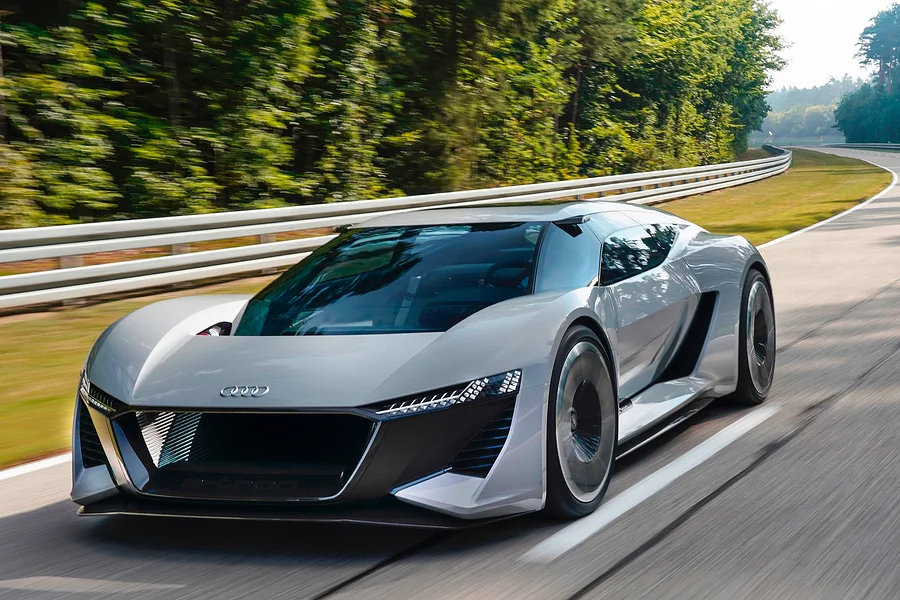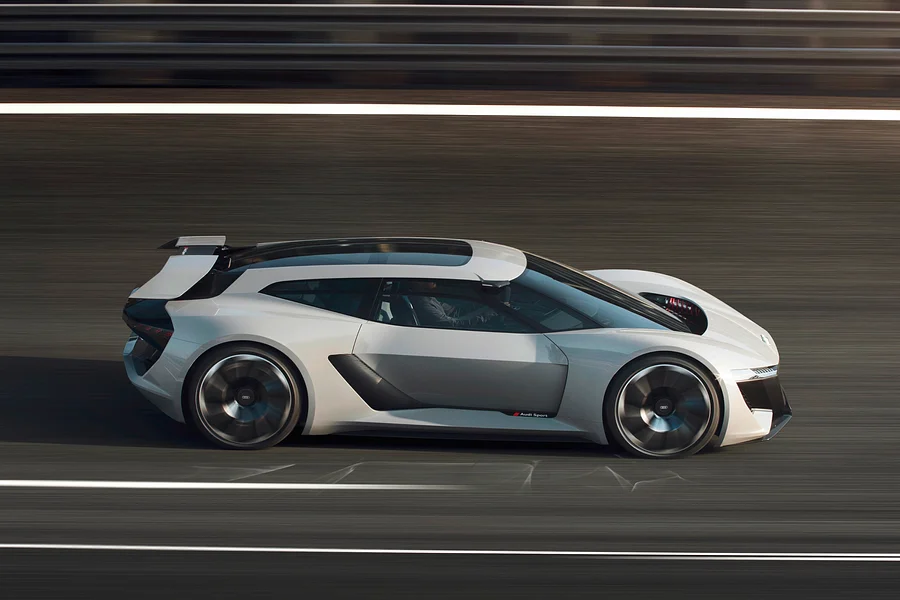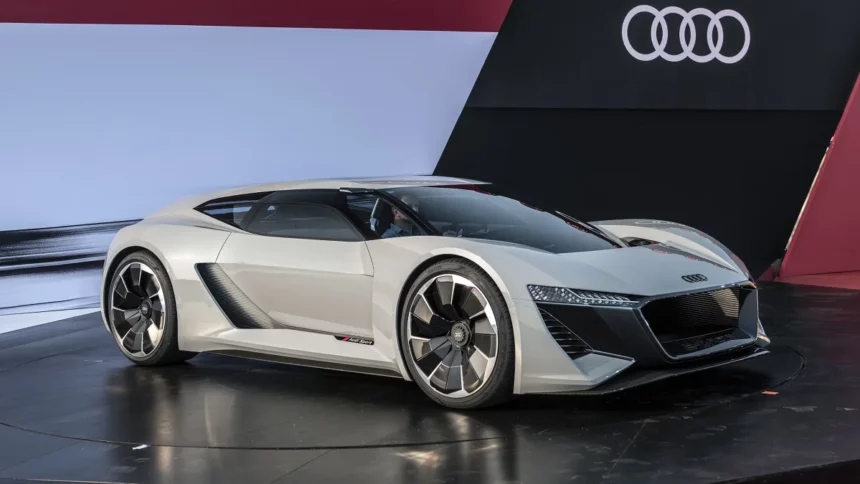For the past 7-8 years, people have consistently heard the news that the Audi R8 has been discontinued, which turned out to be a failure, and there were rumors about a new electric version of the Audi R8 as its successor. But the truth was different in reality because rumors are often just rumors.
The Audi company plans to introduce a new car, which is currently known as the Audi R8 successor. This new car won’t be given a unique name yet, but according to rumors, it will be known as RNEXT.

The reason for discontinuing the Audi R8, which had a V10 engine, is that it is becoming harder to meet the emissions standards. Since Audi is focusing on electric cars for the future, they are also shifting their focus towards electric vehicles.
Oliver Hoffmann, the Chief Development Officer of Audi AG, mentioned that Audi plans to invest in a fresh platform for their upcoming vehicles. The good news is that this won’t be overly costly because they will incorporate components from the Scalable Systems Platform architecture.
“In particular, I’m referring to iconic cars like sports cars,” Hoffmann explained. “We’ll be utilizing various components and systems from this platform toolkit, allowing us flexibility in creating new vehicles within this framework. So, we’ll use the modules and systems from these platforms for these particular cars.”
Hoffmann didn’t provide specific details about how the new Audi R8 successor would compare to other sports cars. However, he did mention that they’ve already started working on it.
“We are firmly concentrating on introducing a significant lineup of new models,” Hoffmann explained. “Over the next two years, we plan to launch nearly 20 new products, with more than 50% being battery-electric. This is our primary focus, but I must admit that we’re also actively involved in various other concepts and projects.”

One of the noteworthy points mentioned in the reports is that the upcoming electric R8 is expected to benefit from Audi’s wealth of knowledge and expertise gained through its involvement in motorsport, particularly Formula E racing. This racing experience is anticipated to impact various aspects of the vehicle, including its electric powertrain, battery technology, and aerodynamics.
It’s worth noting that this won’t be the first time the R8 nameplate has been associated with an electrified powertrain. Audi introduced the all-electric R8 e-tron, which shared the same exterior design as its traditional internal combustion engine (ICE) counterparts. Priced at €1 million and available exclusively in Europe, the R8 e-tron was discontinued after selling fewer than 100 units.
During that time, potential buyers could purchase the V8 or the melodious V10 versions of the R8 at a significantly lower cost. This price difference likely affected the R8 e-tron’s sales struggle. However, in the coming years, as the prices of electric vehicles become more competitive and scalable, new car buyers may not have the option to stick with traditional fossil-fuel-powered alternatives. Audi’s R8 successor must continue from where the current generation model leaves off. The big question is whether enthusiasts will embrace these electric offerings.









